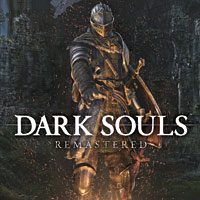Humans – social animals. Gamer Psychology: Why We Rage, and Why It's Ok to

Humans – social animals
Defense mechanisms, as I have mentioned before, are divided into mature, and not necessarily mature ones. The former is characterized by their purposefulness and ability to discharge tension in a way that is beneficial, or at least non-adversarial. It's not harmful to self, nor the social environment.

Mature coping with stress should therefore fit within the appropriate social framework. Of course, social norms are often immature themselves and not adapted to reality (such as wearing a suit to important ceremonies, even if the Sun is dealing 9000 damage per second in spite of AC), but that doesn't matter in case of rage.
Yelling at a computer, swearing and generally aggressive behavior caused by seemingly innocent entertainment in quite a blatant way breaks all conventions. And it doesn't matter whether we consider them rational or not – most people would agree that such behaviors should not take place in a public space. Why? Because anger and aggression, according to their evolutionary design, cause fear.
An angry, potentially unpredictable person can, after all, lose control. The ferocity of the behavior makes us alert, the tension and anger reflect in us, and we get anxious. And even when we realize that a person is not a threat to us, certain reactions are completely subconscious and universal. I don't think people would be as interested in watching temper tantrums if they were taking place on the street, in their vicinity, rather than on YouTube.
But 21st century allows you to watch others rage from the safety of your remote computer. And it really goes to show that social norms regarding aggression have loosened considerably. I'm not even talking about the alarming brutalization of the language of public debate, because the lack of culture in politicians is simply a result of us allowing it. However, you only have to look in the comments section of any popular site to find the levels of aggression that people would never allow themselves in a face-to-face conversation.
Nevertheless, social norms continue to be binding. A middle-aged man shouting out slurs at the computer calling Sekiro names normally reserved for products of the digestive system.

The two usual reactions to breaching social norms is laughter or indignation. Indignation is associated with ostracism, which is meant to discourage whoever broke the rules from continuing to do so. It's meant to create a sense of shame and fear of being excluded from the community. And this, at a time when human instincts were taking shape, could have ended in death – a single person was unable to survive in a hostile environment. Besides, even today we know the concept of voodoo death, i.e. death caused just by exclusion from the community or other kind of curse (the self-fulfilling prophecy effect is pushed to the limit by the authority of the cursing and credulity of the cursed). Of course, outrage over someone's rage in today's society won't hurt anyone, but in certain situations (for example, a disciplinary conversation with a boss who cares about the company's image tarnished by videos of a roasting employee) can have very unpleasant consequences.
Ridicule, on the other hand, works similarly, but in a less aggressive way. It is also meant to evoke shame, often no less severe, and may also have an element of condemnation, but the gravity is shifted towards disrespecting the ridiculed person. Humor is also a defense mechanism, so this kind of reaction can help you deal with ambivalent feelings arising from a given situation. (My favorite streamer is behaving like a crazy person? I'm not going to stop liking him because he makes nice materials, but after something like that it's silly not to react. What's left? Laughing at him!) There may also be an element of schadenfreude, that is, the joy of someone else's misfortune – a feeling perhaps not appreciated, but how often present in society.
The Humor is largely based on surprise and crossing boundaries. There are even jokes that are not funny by design, but break social norms so blatantly that, over time, the grossness of the abstract can be laughable. Yes, I'm talking about a stand-up sketch Aristocrats. No, I can't quote it here. No, don't Google it if you're under 18. Best of all, don't check it at all, take my word for it.
Finally, laughter is pleasant. That's why we like comedy. That's why rage videos are so "fun" to watch. Is it better than indignation? Of course, watching rage is not the highest quality of entertainment, I would even say it's a slightly more civilized variation of patho-streams, the only difference being that the protagonist isn't an alcoholic. It is important to remember, however, that entertainment catering to the lowest instincts has always been the most popular, and the most famous poets created often created vulgar, or erotic works.
In the article, I mainly deal with the natural, honest rage caused by failures (in the game). Equally popular, and perhaps even more, is directed rage based on a script.
An example of this approach might be the "angry reviews" that grow up like mushrooms after rain. They exaggerate, usually in a vulgar way, the negative aspects of weak games (but also films, books or any other cultural works), often including additional characters or staging of short scenes. Although they're called "reviews," they usually are more sketches and less valuable information.
The undisputed icon of angry reviews is James Rolfe, also known as the Angry Video Games Nerd.
Crap!
I don't want to defend public foot-stomping because of our failures in the game, because there's not much to defend either. It's a rather low entertainment and not a particularly glorious episode in the lives of people who lose control on air. I wanted to look at the whole phenomenon from the sidelines, approach the matter as objectively as possible and without prejudice – hence the message of the article may seem too positive. I don't justify rage, but... well, I'd be lying if I didn't admit that it does make me laugh sometimes.
I always remember one of the comments under a silly gameplay on YouTube. The person commenting said they were so jealous about the author being able to laugh for entire thirty seconds because a character in Hitman was pissing.
And that's something that stayed with me. I was playing comedy games, some of them genuinely amusing, and the best I could do was a slight smile, a quiet giggle at best. How could that guy have so much more fun?! I have no idea. But he still hasn't lost his childhood joy.
That's what I wish for everyone – that we can enjoy the games so unpretentiously and spontaneously. And if you can enjoy something like a child, you will also rage like one.
ABOUT THE AUTHOR
I'm a doctor, I specialize in psychiatry, I recently started training in psychotherapy, I know quite a thing about negative emotions. To quote the 2019 classic: "All I have are negative thoughts." Perhaps because of my profession, I try to look at it from the sidelines and try to understand – and if I can't, translate it into the language of neurobiology. I completed Dark Souls, although it was a relationship reminiscent of the Stockholm syndrome. I love roguelikes, but I'm not very good at them. I often lose, I know a lot of words that are widely considered vulgar, but in company, I try to keep my nerve.



